
WAHNAPITAE ANISHINABEK TERRITORY – Some 45 minutes north west of Sudbury, Ontario, deep in a forest of birch trees nestled along the shores of picturesque Lake Wahnapitae, sits Creator’s Choice, the premier indigenous cannabis dispensary in Northern Ontario.
Owned and operated as a family business by Derek Roque and his father Giles, Creator’s Choice is an example of the transformative power of the Indigenous cannabis industry. Opened on February 15th 2018, Creator’s Choice now serves an average of 300 customers a day. These customers usually drive an hour or more to come to the store, turning down Highway 84 in Capreol, and then making their way along a picturesque dirt road to Wahnapitae. The need for medical-grade, pesticide-free cannabis that customers can touch and feel in a stigma-free environment is what brings them here in such numbers. As a result of the Roques’ entrepreneurial spirit, Wahnapitae First Nation is booming, and over 20 locals have found full-time employment in the business.
Upon arriving at Creator’s Choice, the first thing you’ll notice is the architecture of the building itself. Set back from a large parking lot is a gleaming two story building that seems to direct you through the front doors with its outstretched arms. Once inside the spacious two story lobby, customers swirl around the circular sales counter and admire the walls decorated with murals by indigenous artist Isaac Webber – who went viral on social media after painting the Sudbury water tower with the slogan “Skoden.” Private consulting rooms are available for customers to discuss their medical history and options for treatment with the knowledgeable and friendly staff.
Because of the long drive to Wahnapitae, the Roques wanted to make their store a welcoming destination point where visitors can relax and recharge. The store hosts the Taighwenini House of Coffee, a cafe and snack shop packed with board games and reading materials, and an adjacent building has a soft ice cream stand with a flavour for everyone. Taighwenini’s coffee is exclusively fair trade and organic and is sourced from Birch Bark Coffee, an Indigenous business owned by Mark Marsolais-Nahwegahbow of Whitefish River First Nation. Another part of the building showcases locally made indigenous art and crafts. The store is fully wheelchair accessible and features a large accessible bathroom on the ground floor.
The traffic coming to Creator’s Choice also has an important impact on other businesses in Wahnapitae. As Derek says, “We always refer our clients to Rocky’s where they can get a meal, gas up their vehicles, or launch their boat on one of the region’s largest and deepest lakes.” The profile and economic wealth of the community is steadily growing with all the visitors accessing the community’s cannabis shops.
The customers streaming through the doors of Creator’s Choice don’t fit the stereotypical image of “pot heads.” According to manager Nicola Roque, “the vast majority of our clients are coming here for medicinal cannabis products to treat their ailments and illnesses and improve their quality of life.” Baby boomers and the elderly are a big part of Creator’s Choice client base, and the store specializes in providing the highest quality medicinal cannabis products available.
Healing with Cannabis
Key to Creator’s Choice’s popularity is the fact that it provides medicinal cannabis products that aren’t available under the Canadian system. In addition to a wide range of edibles, topicals, and flower based products, Creator’s Choice provides specialized cannabinoid extracts such as Delta 8 which have had significant results in combating symptoms associated with degenerative diseases such as MS and Parkinsons.
Sandy Stretch is a Creator’s Choice patient who suffers from Multiple Sclerosis. Sandy was nearly killed by the failure of the Canadian medical system to accurately diagnosis her MS, and once they did, she wasn’t able to find relief for her symptoms with the prescriptions issued by her doctors. She came to Creator’s Choice and found instant relief by using a CBD water product that enabled her to continue working at her job. As Sandy says:
“I hate the feeling of being high. I never did drugs – I never touched any drugs or cannabis until I became sick. When I got sick, I needed to find something that worked and that wouldn’t hurt my brain or hurt me and that’s when I started researching cannabis.”
Although Sandy was able to get a medical cannabis prescription from her doctor, the Canadian medical system was unable to provide her with any meaningful advice about what specific products, cannabis strains or dosages would be appropriate for her.
When she came to Creator’s Choice, the staff recommended that Sandy begin taking Delta 8 THC, a cannabinoid that has no psychoactive effects, and which has been found to be beneficial in treating bipolar disorders, fibromyalgia, MS, cancer, pain and depression. For Sandy, the effects were immediate and enable her to not only halt, but to reverse some symptoms of her disease. As she notes, “The cognitive abilities that I was able to recapture – to be able to even sit here and speak about it – I attribute to the fact that I’ve been taking Delta 8.”
When asked about the threat of police raids to shut down unlicensed cannabis dispensaries like Creator’s Choice, Sandy was adamant about her support for the store. “If I had a chance to get in front of our leaders and law-makers that are trying to shut this place down, I would fight and protect this place. I’ve looked everywhere. I’ve tried through their [Canada’s] methods to get the medicine I need to make me feel better. And since I can’t get it through their means, why can’t you leave this shop alone and leave Creator’s Choice here to educate other people and let them do what we need to do to keep our medicine alive?”
Eileen Hall, a member of Wahnapitae First Nation, concurs. She lives in Midland, and works at a local Tim Hortons where she’s on her feet all day in a fast-paced work environment. Scheduled for surgery for a torn meniscus in her knee and a cyst, she turned to Creator’s Choice products in order to avoid taking doctor prescribed opioids. She took a pure spectrum CBD tincture orally, and “within 45 minutes I had no pain in my knee.” As a result of this treatment Eileen was able to work up until her surgery, and became a big supporter of Creator’s Choice, even though she had never before tried using cannabis products, and “can’t stand the smell” of the cannabis plant. Speaking about the store, Eileen points out that “You can tell that there’s a lot of people going to the store because they’re in pain. And if it works, why not? It’s better for you than a lot of the harsh drugs out there that you can become addicted to.”
A ROCKY START
The Roque family, along with the Recollet family, were one of the two main “founding families” who re-established Wahnapitae as a First Nations community in the 1980s. Derek Roque’s father Giles and cousin Roy were instrumental in building the community’s original businesses and infrastructure, even going so far as to organize the building of the road to the community itself.
Derek Roque and his wife Nicola initially returned to Wahnapitae in December of 2016 to reconnect with their friends and family in the community. Derek had left the territory at the age of 20 to find work as a steel fabricator in British Columbia. While he was out west, Derek participated in the cannabis industry and became a designated grower under Health Canada’s licensing system. He also started his own mountain bike component company for which he won an aboriginal youth entrepreneur award, and took university courses in nursery management and plant propagation in order to increase the productivity of his cannabis grows. In returning to Wahnapitae, Derek wanted to contribute his wealth of knowledge to the benefit of his community. As he points out, “At Creator’s Choice we know what we’re doing. We have the resources and the education and most importantly the elbow grease that it takes to make a sustainable thriving business located an hour outside of a metropolitan hub.”

When Derek and Nicola returned to Wahnapitae, they took over the management at Rocky’s, a restaurant and marina that had been established by Derek’s cousin Roy in 1991. Rocky’s was one of the first licensed restaurants on an Indian reserve, and provided gas at its marina to local boaters and cigarettes to visitors. Rocky’s was purchased by the Wahnapitae Band Council in 2010. Rocky’s had been running a deficit; within seven months Derek and Niocla had made the business profitable again.
But operating a band-owned business on reserve proved to be a frustrating and unrewarding process for the two. Community members with close ties to Band leadership often simply helped themselves to products and services, and decisions which should have been guided by a business logic were often made with personal politics at the forefront. At the end of the day, the entrepreneurial spirit of the Roques came up against the bureaucratic practices of the Band Council, and they decided to move on and continue their family’s tradition of business innovation.
In 2017, First Nations Medicinal, a cannabis dispensary opened by Chadwick McGregor, started up in Wahnapitae. The shop operated from a trailer on the residential end of the community, and soon began doing a thriving business. The arrival of the cannabis industry in Wahnapitae was connected to a broader Indigenous cannabis movement that originated in Tyendinaga Mohawk Territory in 2015 with the opening of Legacy 420 by Tim Barnhart. By 2017, Anishinabek communities in the south such as Alderville were getting into the cannabis industry as well, and the Roques went out to investigate this booming Indigenous cannabis industry.
Impressed by the high medical standards and operating procedures of Rob Stevenson’s Medicine Wheel Natural Healing in Alderville, the Roques decided to open up Creator’s Choice and to operate it in accordance with the self-regulation guidelines that had been produced by the Mississauga of Rice Lake Cannabis Association – an alliance of Indigenous cannabis stores in Alderville.
In making this decision, the Roques made every attempt to accommodate and engage with the Band Council in Wahnapitae. According to Roy Roque, “When we first started Creator’s Choice with the trailer, we had all the respect in the world for our Chief and Council. We went to them at least 8 months prior to opening up and kept asking, but nothing came of it. We submitted our business plan to them. And nothing came from all our efforts. Finally we said to them, ‘Ok, we are opening up on February 15th, 2018 and do you have any issues with it’ – and still nothing.”
Starting with a small trailer in a lot in the community’s business sector, Creator’s Choice quickly became successful. After 7 months in operation, enough capital was raised to begin construction on a permanent facility with a spacious parking lot.
Quality control for Creator’s Choice is a relatively un-complicated matter since the store grows its own supply of cannabis and tests all products for their potency in accordance with the Red Feather certification system developed by the Mississauga of Rice Lake Cannabis Association in Alderville First Nation. Under Health Canada’s licensing system, some 96 pesticides are legal for use on plants. In contrast, Creator’s Choice uses no pesticides on their products, and consistently produces high grade cannabis tested for its THC and CBD levels.
The conflict with the Indian Act
Despite the undeniable benefits that the cannabis industry has brought Wahnapitae, it hasn’t all been smooth sailing for the Roques. As in many indigenous communities, the Indian Act system has created and sustained divisions within families. In Wahnapitae, this has led to a conflict between self-starting entrepreneurs like the Roques, and the operators of the bureaucratic apparatus which provides programming and service dollars through the Indian Act. The Canadian government doesn’t want un-taxed and sovereign indigenous cannabis dispensaries operating on reserve in competition to its own Crown corporations, and has made extensive efforts to encourage Band Councils to direct local Indigenous entrepreneurs into the Canadian provincial cannabis system.
When they opened their store, the Roques took detailed documentation to Band Council to show how they were operating according to their constitutionally protected Aboriginal rights and to explain how they were taking steps to protect consumers and follow the best practices within the existing Indigenous cannabis industry. Their attempts to speak with Council were turned down, and Council went so far as to pass a standing motion to prevent any band members from speaking at Chief and Council meetings. That didn’t stop Derek and his father and uncle from attending all Band Council meetings as observers, but they were unable to offer input about the matters being decided on their behalf.
Undeterred, Creator’s Choice repeatedly attempted to give back to the community by making donations to Band programs and services, but on every occasion they were turned down by a Council unwilling to take money from “illegal” sources. Aware of the detrimental effect that the large numbers of customers were having on the road to the reserve, Creator’s Choice donated asphalt, gravel and sand for the upkeep of the road. They also covered all the costs of the community’s members attending Little NHL in 2019, made donations to the Health department, and sponsored the Wahnapitae women’s softball team.
Blocked from participating in the decision making processes of their own community, Creator’s Choice did not give up their rights to participate in the Indigenous cannabis industry. They continued to play a role in the broader Anishinabek cannabis movement, and retained the services of former Regional Chief Isadore Day and his consulting firm Bimaadzwin. Day was involved in organizing meetings of the National Indigenous Cannabis and Hemp Conference, and has been a leading figure in putting together meetings between industry spokespeople and high ranking Canadian government leaders including minister Bill Blair, the former Toronto Police Chief who Trudeau put in charge of legalization efforts.
One of the major issues with the way that Canadian cannabis legalization was rolled out was that it involved no consultation with Indigenous people, and because it devolved the recreational cannabis system to the provinces, it left Indigenous people living on reserves outside of the cannabis regulatory system. This was not a problem for sovereign minded entrepreneurs who took the opportunity of Canada’s cannabis legalization to grow their own industry on their own terms, but it has complicated how Band Councils – instruments of Canada’s Indian Act – think through the question of cannabis. The summer of 2019 was marked by referendums organized by Band Councils across Canada, asking the people what they thought about cannabis. In May of 2019, Wahnapitae’s Band Council decided that they would hold a community referendum on the topic. At first the referendum seemed straight-forward. But then the Band Council substituted a different referendum question on the ballot than the one they publicly announced, and pointedly refused to follow the rules outlined in the Indian Referendum Regulations of the Indian Act for the running of the referendum itself.
Not only did the leadership bar Band members associated with Creator’s Choice from speaking at the June 1st public community meeting to discuss the referendum question, but the Council also denied Creator’s Choice the ability to send out educational materials in the “information package” that was mailed out in the referendum, and publicly attacked the mailout that Creator’s Choice did send out.
For Derek, that whole process has been unfair, and has violated his Charter-protected Aboriginal rights. As he states, “100 percent we’ve been muzzled. We’ve been given a letter that says that we’re not allowed to speak at Chief and Council meetings. If we have a question or something we’d like to do, we have to go through rigorous paperwork to submit a question…. We talk about fairness. There’s no fairness. I can’t speak at any of the meetings, I’m not allowed to rent the hall to hold a professional, organized, facilitated meeting about the topic of cannabis.”
Perhaps sensing the way the political winds were blowing, on the day before the referendum Council passed a set of “Cannabis bylaws” at a secret Band Council meeting on June 28, with no community consultation. These bylaws were intended to come into effect in the case of a yes vote, and prohibited all cannabis sales on the territory that do not come from Canadian Licensed Producers through Health Canada and Provincial regulations. Council thus ensured that no matter how the referendum went, cannabis sales in Wahnapitae would operate according to the Canadian system.
Despite all these actions by Band Council, the people of Wahnapitae decided in the referendum that they wanted to move forward with sales of cannabis in their community. Creator’s Choice issued a public statement and gathered signatures on a petition of support, and kept its doors open, despite the questionable new bylaws passed by Council.
NORTH SHORE EXPANSION
With a host of cannabis referendums expressing the support of Anishinabek people for sales of cannabis on their territories, momentum continues to grow for the Indigenous cannabis industry. Following a series of meeting held in Alderville in March, Pikwakanagan in April, and Wahnapitae in May, a North Shore Anishinabek Cannabis Association has been created through the efforts of Creator’s Choice and its allies in the Indigenous cannabis movement. This effort seeks to link some 30 different communities around a common framework of self-regulation.
An all-day gathering is being held on Thursday, August 29th, 2019 to launch the association. The goal is to unite all those who are willing to take the next step forward to grow the Indigenous cannabis industry, and to do it on the basis of the fundamental rights of the people to medicine and a sovereign economy. In this process, the successful example of Creator’s Choice stands as a beacon to those who would follow their path, and bring the full benefits of the cannabis plant to the Indigenous people of Turtle Island.


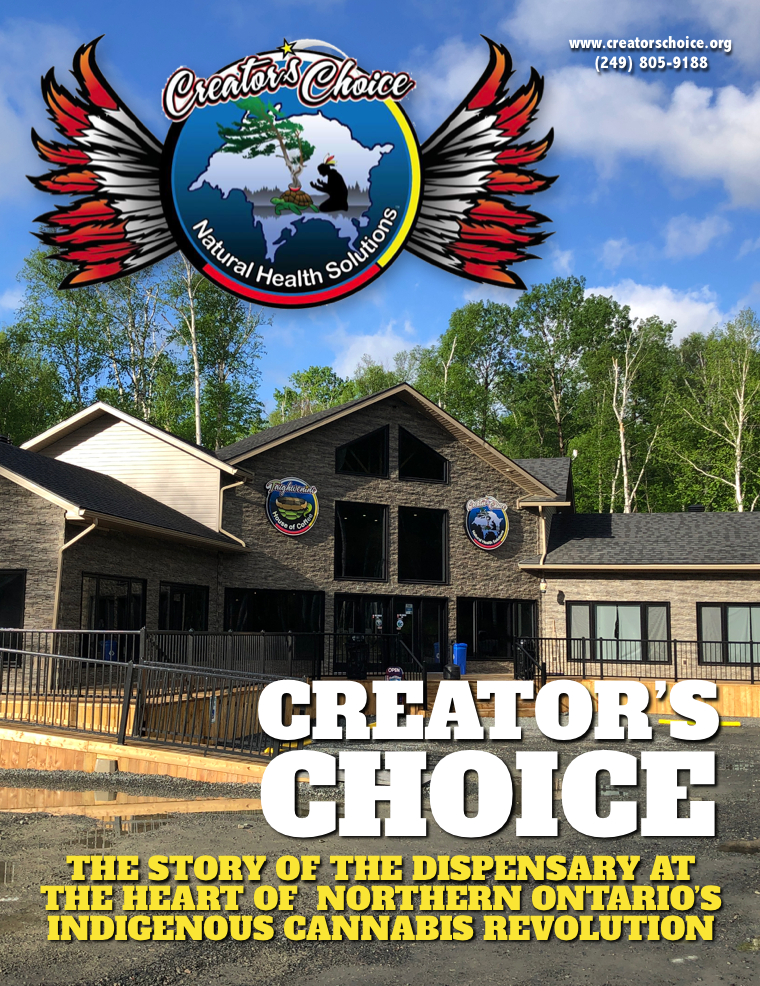


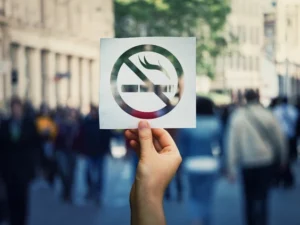

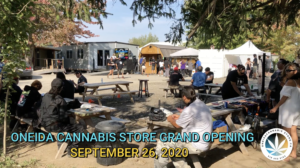

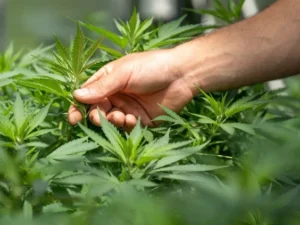
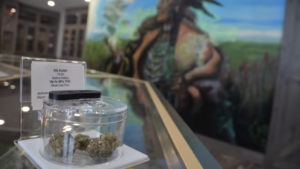
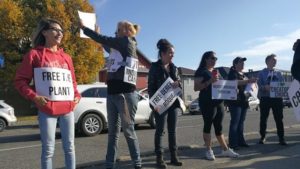






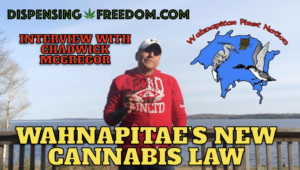
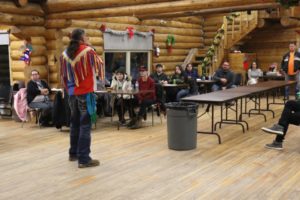

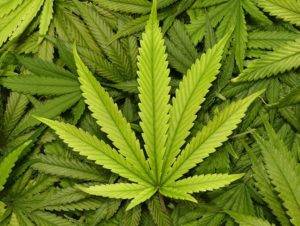
Comments are closed.